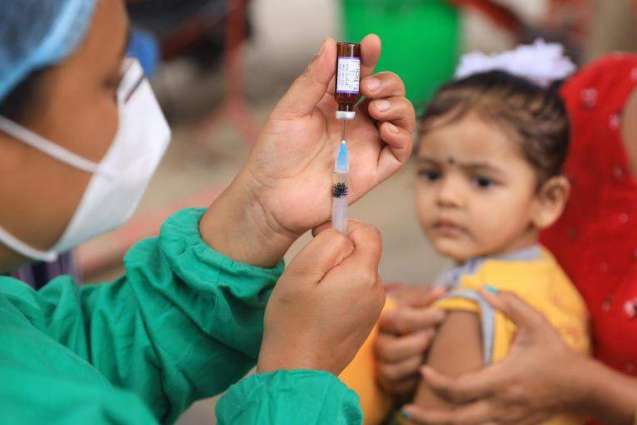The disruption of sexual, reproductive, maternal, newborn, child and adolescent services caused by the coronavirus pandemic measures may have resulted in an additional 239,000 child and maternal deaths in South Asia in 2020, a new report by the UN Children's Fund (UNICEF) said on Wednesday
UNITED NATIONS (Pakistan Point News / Sputnik - 17th March, 2021) The disruption of sexual, reproductive, maternal, newborn, child and adolescent services caused by the coronavirus pandemic measures may have resulted in an additional 239,000 child and maternal deaths in South Asia in 2020, a new report by the UN Children's Fund (UNICEF) said on Wednesday.
"According to our estimates, due to the disruption to essential SRMNCAH services and other contributory factors, an additional 228,000 child deaths, and more than 11,000 maternal deaths will have occurred in the region in 2020 alone," the report said.
The greatest increase of deaths among children under five years old is anticipated in India and Pakistan, amounting to over 213,000 fatalities, the report said. These two countries saw reductions of around 35 and 65 percent respectively in the number of children receiving the pentavalent vaccine that protects against the five major diseases.
The report said an additional 3.5 million unintended pregnancies are likely to have occurred last year across Pakistan, Afghanistan, Bangladesh, Nepal, Sri Lanka and India.
With some 420 million children having been affected by school closures and given the cultural and social context of South Asia, it is expected that the six countries will see additional 400,000 adolescent pregnancies, as well as an increase in the number of maternal and neonatal deaths and in rates of child stunting, the report said.
The report recommended a number of measures, including the prioritization of services for pregnant women, adolescents, and young infants, protection of the supply chain and delivery of immunizations and ensuring adequate personal protective equipment supply.
The report further recommended improving coverage of quality community-based nutrition, health, and other outreach services and strengthening nutrition support programs for the most vulnerable children.




